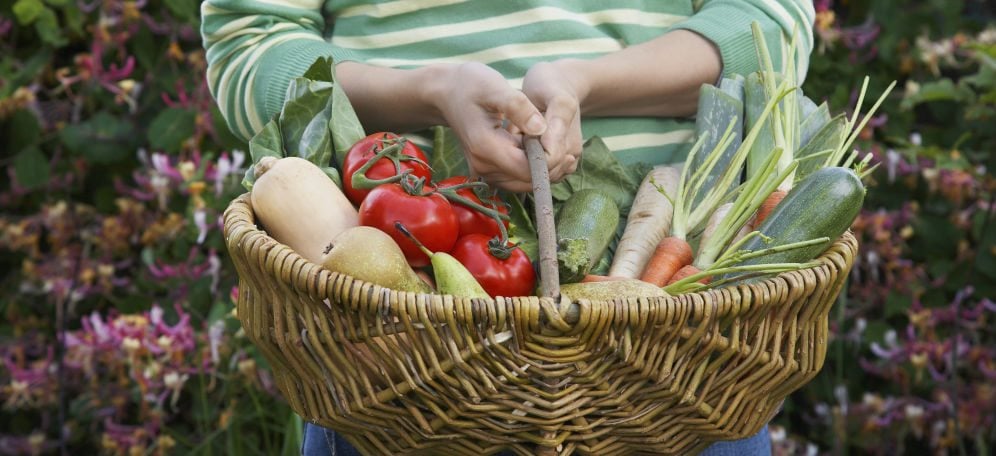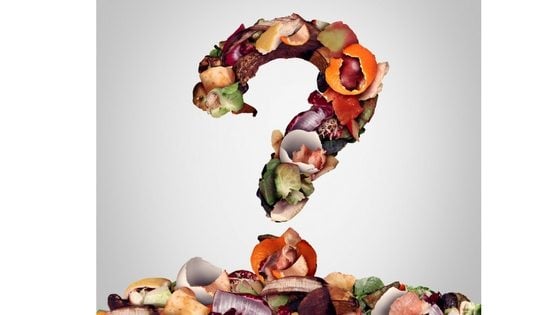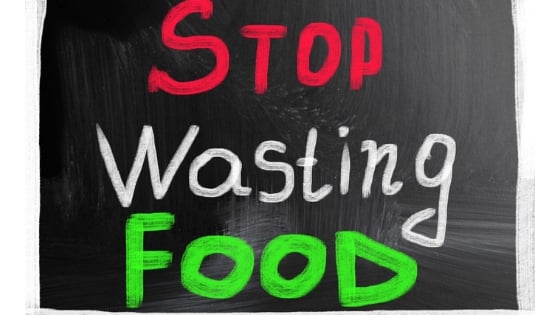
How To Recycle Organic Waste: Waste Management For Your Business ♻️
How To Recycle Organic Waste ♻️: We all want to boost our recycling performance, don’t we? As a business, it can also help minimise our total costs for waste services. Once a business has taken the easiest steps such as implementing a waste management plan and then following through with introductions of cost-saving and recycling-boosting services such as cheap cardboard collection, commingled recycling, confidential paper disposal etc., organic waste solutions can be a logical next step.
>Download Now: Free PDF Business Owners Guide To Commingled Recycling Bin Services
Before booking an organic waste collection, you should consider any other possible avenues for reducing your food waste content. There are numerous charities and organisations that will take food away. For example, we have homeless charities and larger entities such as SecondBite. Local farmers, in particular, may also take the waste food for feeding livestock. At the end of the day, if you can avoid paying to have the waste removed, you should spend some time exploring the options.
We also recommend you read our article on how you can help the environment by recycling more of your waste.

Benefits of organic waste solutions
There are numerous benefits to introducing an organic / food waste service at your location if your business produces significant amounts of food waste and currently disposes of them in General Waste bins.
Through our online waste shop, you can book organic waste solutions in 120-litre bins. We currently offer the service in Sydney, Melbourne and Adelaide metro regions.
Potential cost savings
Significant amounts of food or organic waste in general waste bins can significantly increase the weight of the bins and hence the cost of collection. If the food waste can be separated from the General Waste you could receive considerable discounts on your General Waste bins.
As the weight and the volume of General Waste will be reduced, you may be able to reduce a service per week etc. You should also remember that if the food waste is removed, the bin will not smell as much and hence may not need to be collected as regularly. Check out our blog on wheelie bin cleaning for more info in this regard.
Improved recycling
Organic waste can be diverted to an organic waste management facility where the waste can be diverted from landfill and even turned into electricity for the grid or used to produce useful by-products such as compost. There are major investments occurring in Australia in recent years in such facilities – often called resource recovery facilities. Check out Earthpower in Sydney and also Sita Organics in this regard for the science behind the processes.
Health and safety improvements
Heavy bins are the primary cause of push and pull injuries such as strains. By removing organic and food waste from General Waste bins, the average weight of your larger bins will decrease. Food waste is picked up in smaller bins such as 120-litre bins. This is one of the easiest ways to reduce injuries, particularly if you have to move large bins around your sites.
Check out our article on green waste removal in Melbourne and food waste in Australia.
Next steps to arranging organic waste solutions
We suggest you check the prices of your organic waste solutions in our online shop:
See our blog on industrial environmental services for how to find the right balance between recycling and cost-cutting.
When we talk about diverting waste from landfill – very often it seems like people do not care whether we are talking about organic waste processing or dumping of plastics or metal in the landfill. When the Government talks – it sometimes sounds like all waste was created equal – and organic waste processing is as important as preventing plastics from entering our oceans.
As it is a new year – this blog was originally published on 14 Jan 2020 – we think it is good to start the year with some big questions regarding our national approach to organic waste processing – as our recycling industry is certainly at a crossroads.
In today’s blogs – I do not pretend to have all the answers – but I just want to ask some questions that hopefully will make people think. See our podcast on this issue in cash for trash.
How to recycle organic waste: do we need organic waste processing?
When I started looking at the issue of global and Australian food waste and the problem of organic waste processing, I have to admit, I did not really understand why it was actually a problem (organic waste meaning).
Of course, when I was a kid, I was always told not to waste food as that was an inherently bad thing (i.e., eating or playing with food when other people were starving).
However, I could not connect that an apple rotting in a landfill was any worse than an apple falling from a tree in a forest. Apparently, food waste in a landfill is bad for the environment because, in a landfill, rotting food produces methane.
The Aussie Government helpfully explains with insight on organic waste meaning:
“Although our food systems are highly developed and produce large volumes of nutritious food, food waste is estimated to cost the
Australian economy $20 billion each year. This has significant impacts on the environment through the wasted use of resources such as land, water, energy and fuel to produce and distribute food. When disposed of in landfill, food waste has other environmental impacts such as the production of greenhouse gas emissions.”
More on organic waste processing
According to watchmywaste.com.au
“In Australia 8.2 million tonnes of food waste is generated each year, most of which ends up in landfill. Once in landfill, food waste breaks down and emits greenhouse gases, including not only carbon dioxide (CO2) but methane (CH4) – a gas 25 times more potent than CO2.
“In fact, the greenhouse gases produced by food waste in Australian landfill each year is equivalent to the emissions of Australia’s steel and iron ore industries combined!”
The problem for me is that many modern landfills in Australia have gas capture systems to either flare the methane or use it to create electricity. There is even an argument that landfills will be seen as the power stations of the future.
You could almost argue that we should encourage sending food waste (organic waste processing) to landfill for this reason as it will be a truly sustainable energy source! See an article here on biogas.
Is farming good or bad for the Australian environment?
This is a complex question. I always assumed that preventing desertification and irrigating crops would be good for the environment. Do plants and trees not take in C02 etc.?
I assume that actually growing food of all kinds would be broadly good for the environment. Although, I would guess this would be very tricky to measure accurately. Of course, there is an argument that cows etc. produce methane as above.
How to recycle organic waste: if farming is bad, why produce compost from food waste?
There is a circular inconsistency in the organic waste processing approach as producing compost from food waste will boost more food production – but is that a bad thing?
I honestly do not think so.
There is a logical problem here though: we are encouraged to grow more food (as composting is recycling and hence is not subject to a landfill levy), which will lead to more food production.
Disposal of the food waste produced – which creates no more food and is used often to produce biogas and electricity – is heavily taxed with a State landfill levy. Why?
This makes very little sense to me.
Is landfilling food waste bad if we capture methane?
From my understanding, dumping at landfill is on a per-tonne basis. For example, a tonne is charged in Sydney at c. $310 plus GST. It does not matter whether it is food waste, bricks or plastic cups.
If food waste decays and is used to create clean electricity, is that not a good thing for the environment? If so, why should there be a tax on it? Is it any better or worse than composting?
Should food waste producers be charged more or less than people producing large amounts of plastic etc.?
When we work with small and medium businesses like cafés and restaurants, the levy on general waste has become a real burden to doing business.
The levy is supposed to encourage recycling and decrease general waste in landfill. A café will often have heavy bins and hence high costs due to the density of organic waste.
However, there is very little that a café can do as their waste is basically food waste (organic waste pick up). i.e. they can not recycle it like bottles or cans.
We are basically just taxing the food service business even though their waste can produce electricity. Moreover, we are actually charging them more than companies producing large amounts of plastic etc.
For example, one company could make lots of throw-away plastic straws and pay very little in landfill levies vs a café that throws away food scraps is penalised by high bin costs.
Does this sound sensible or fair to you?
Should we feel bad about not eating more food?
Can it be shipped overseas if not consumed? Is it not a disconnect between rural areas producing food and large populations in the third world?
If Australia is very fertile for food production with a very low population density, is there much we can actually do about it? Other countries are much more densely populated such as nearby Indonesia.
However, is it practical to think we could ship excess food (that is not currently traded) to other countries?
Would this not be hugely loss-making if not currently paid for etc.? Also, would it not entail huge greenhouse emissions in shipping and transport?
By buying less food, would we really decrease the amount of food grown, produced and sold?
If we bought and wasted less food and consumed only what we needed, would this actually benefit the environment?
Would supermarkets stock less and farmers grow less? It seems very far-fetched to me, to be honest.
Are we actually encouraging less productive farming (which actually would make sense if it meant less animal cruelty and pesticides)?
However, this does not seem to be what is being proposed.
How to recycle organic waste: why are organic waste processing facilities for food waste called recycling when it is not much different to landfill?
We have covered how you can utilise organic waste bins to avoid landfill for your food waste (and many other organic waste disposal methods). These plants generally either compost the food waste in a commercial manner. Note that Australia has actually too much compost to sell commercially or use to generate electricity.
As landfill gas capture technologies improve year after year, is there any real difference between organic recycling and dumping food waste at landfill?
Is our waste levy system not misguided?
I do not pretend to know the answers. But to me, food waste and organic waste processing are much smaller problems than plastic waste and plastic pollution.
At Waster, our view is that plastic waste should be eliminated wherever possible, with new organic and biodegradable plastics being introduced. We would also suggest organic waste is not charged a levy. Food waste should go to a specific “wet landfill” with modern gas capture. This would equate to a specific bin for organic waste.
The only levy would be imposed on recyclable commodities that are not recycled. Of course, this would lead to issues on how to separate organic and inorganic waste. However, that scenario could be overcome.
What do you think? Do you have any good tips on how to separate organic and inorganic waste? Does the organic waste definition need to change to make sense in 2021?

More on organic waste recycling
At Waster, we are always looking at new environmental processes such as organic waste recycling.
Organic waste, in this context, means food waste such as from cafés, restaurants or food production businesses.
Organic waste can be really troublesome as it is commonly very heavy and hence expensive to dispose of. See our blog on recycling versus waste prevention. In addition, food waste can be super heavy. For example, think about a bin that an office-based business may have. A regular bin contains a mix of paper, cardboard, packaging, food scraps, and various other items.
A food waste bin (see green waste removal) can be very heavy. After all, it is not bagged. Hence, there is no empty space.
Due to ever-increasing levies on dumping at landfill, the cost of a tonne of waste is now almost $300 in the Sydney metro region. This makes alternative solutions for organic waste recycling even more pressing.
How to recycle organic waste and why biogas could be the future of organic waste recycling
We covered in a recent blog how a Melbourne landfill could become a power plant of the future.
In that blog, we touched on the idea that biogas production is a more efficient method of electricity generation. See our new blog on whether recycling is good for the wider economy.
What is biogas?
Quoting Wikipedia : Anaerobic digestion is a collection of processes by which microorganisms break down biodegradable material in the absence of oxygen. The process is used for industrial or domestic purposes to manage waste or to produce fuels. Much of the fermentation used industrially to produce food and drink products, as well as home fermentation, uses anaerobic digestion.”
Anaerobic digestion is widely used as a source of renewable energy. The process produces a biogas, consisting of methane, carbon dioxide and traces of other ‘contaminant’ gases. This biogas can be used directly as fuel, in combined heat and power gas engines or upgraded to natural gas-quality biomethane. The nutrient-rich digestate also produced can be used as fertilizer.

How much electricity could be generated in this way in Australia?
Can you think of strong reasons why we should recycle organic waste? Reportedly, it could generate electricity: one of the most valuable commodities in today’s world. I would even argue that it is the most valuable commodity we have!
The website The Conversation suggests that we could produce huge amounts of electricity :
“Australia produces about 20 million tonnes of organic waste per year from domestic and industrial sources.
“If all the organic waste from Australian domestic, industrial and agricultural industries was treated in biogas plants, it would have the potential to produce around 650 megawatts of electricity. That’s enough to power almost one million Australian homes.
“The bioenergy industry expects biogas could be more important than solar, and as important as wind. The remainder of Australian bioenergy comes mostly from the combustion of sugarcane waste, also known as bagasse.
“The majority of biogas plants in Australia – upwards of 50 – are associated with municipal waste treatment facilities. Commercial operations include Melbourne Water and Sydney Water, which use sewage as their biogas feedstock.”
See a video below of a large biogas project in operation in Denmark – for an indication of the scale and effectiveness of the approach.
See our blog on whether recycling is a waste of time.

How to recycle organic waste: conclusion
Many landfills now burn gases to create electricity. This biogas system is the next logical step and can deliver renewable energy to Australia.
It can reduce costs for waste disposal for businesses and really decrease greenhouse emissions – certainly something looking into if you ask me!
See our blog on recycling versus waste prevention.
Leave a Reply Cancel reply

Product categories
Most Popular Posts
-
Commercial Waste Management Services: Reduce Waste Collection Costs! 🚍
-
Medical Waste Disposal: Everything You Need To Find Out In 2024! 💉
-
Rubbish Removal Sydney 2024: Better Bin Collections For Business ✅
-
Clinical Waste Disposal 2024: What To Know About Business Clinical Waste ⚕️
-
Secure Document Destruction 2024: All About Security Bins Shredding 🔒
-
Free Cardboard Recycling 2024: Can I Get Free Cardboard Collection? 📦
-
Confidential Paper Disposal Bins 2024: What You Need To Know About Shredding! 🔒
-
Recycling Bins Australia 2024: Recycling Can Boost Your Profits! ♲
-
Commercial Wheelie Bin Collection: What Businesses Need To Know In 2024 🗑️
-
Commingled Recycling 2024: Why Commingled Bin Is Key To Recycling 🍾














